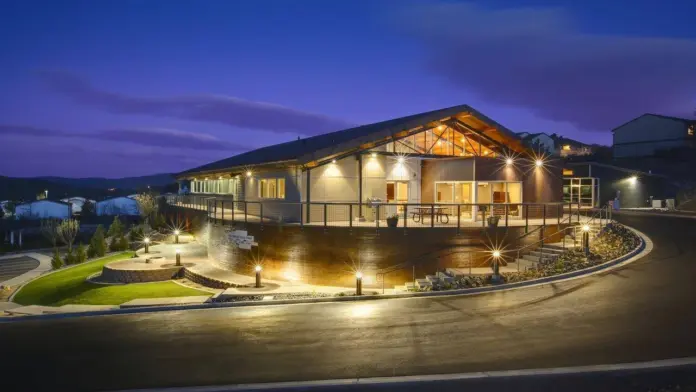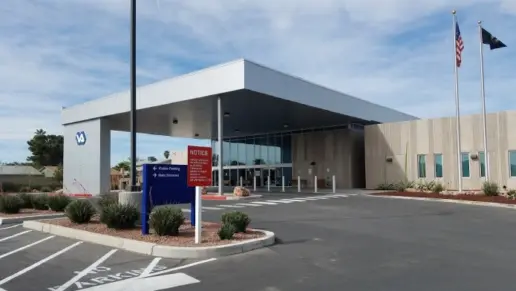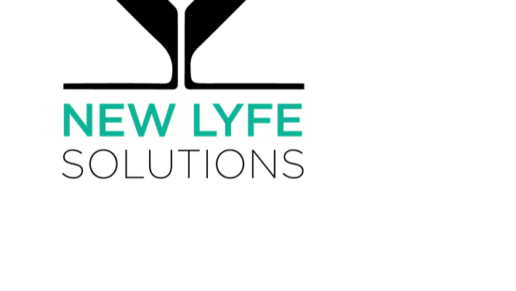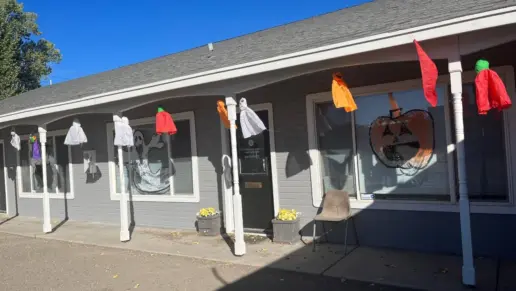About STEP2
STEP2 provides gender-specific long-term treatment services for substance use disorders, domestic violence intervention and education, and trauma services.
STEP2 is a private, local non-profit organization based in Reno, Nevada.
Since 1986, we have helped women who are experiencing substance use disorders participate in rehabilitation services. We understand that women experience certain barriers in obtaining services which is why our mission is to provide gender-specific supportive services to women, women with young children and expectant mothers.
STEP2 was founded on the principle that pregnant and parenting women should not have to choose between being a parent and receiving substance use disorder treatment and we believe that a continuum of care model should encompass multiple steps to reach and maintain sobriety.
While having children is not a requirement to access treatment at STEP2, approximately 75% of our clients are mothers. STEP2 serves women and children together as a unit for recovery rather than individually. Most of our women are single heads of households, struggling with both addiction and poverty, and caring for dependent children with little family or social support.
Our year-long program includes residential inpatient services at our 20-bed residential facility, outpatient services and transitional housing as well as wraparound services including case management, medical care referrals and coordination, childcare assistance, parenting education, transportation assistance, domestic violence advocacy and education, and on-site mental health assessment, therapy and medication assistance.
Every woman should have the support they seek during their journey to sobriety and STEP2 is here to help.
When a woman is ready to leave STEP2, she is clean and sober, gainfully employed, and she has learned life skills that will allow her to break free from patterns and environments that perpetuated addiction to create and maintain a better life for herself and her children.
Latest Reviews
Rehab Score
Gallery

Location
Accepted Insurance
Other Forms of Payment
Private insurance refers to any kind of healthcare coverage that isn't from the state or federal government. This includes individual and family plans offered by an employer or purchased from the Insurance Marketplace. Every plan will have different requirements and out of pocket costs so be sure to get the full details before you start treatment.
Self-pay involves paying for treatment out of your own pocket. You can use savings or credit, get a personal loan, or receive help from family and friends to fund your treatment. If you don't have insurance or your insurance plan doesn't cover a specific program, self-pay can help ensure you still get the care you need.
Financial aid can take many forms. Centers may have grants or scholarships available to clients who meet eligibility requirements. Programs that receive SAMHSA grants may have financial aid available for those who need treatment as well. Grants and scholarships can help you pai for treatment without having to repay.
Sliding scale payments are based on a client's income and family size. The goal is to make treatment affordable to everyone. By taking these factors into account, addiction recovery care providers help ensure that your treatment does not become a financial burden to you or your family, eliminating one barrier to care.
Medicare is a federal program that provides health insurance for those 65 and older. It also serves people under 65 with chronic and disabling health challenges. To use Medicare for addiction treatment you need to find a program that accepts Medicare and is in network with your plan. Out of pocket costs and preauthorization requirements vary, so always check with your provider.
Military members, veterans, and eligible dependents have access to specific insurance programs that help them get the care they need. TRICARE and VA insurance can help you access low cost or no cost addiction and mental health treatment. Programs that accept military insurance often have targeted treatment focused on the unique challenges military members, veterans, and their families face.
Medicaid is a state based program that helps lower-income individuals and families pay for healthcare. Medicaid covers addiction treatment so those enrolled can use their coverage to pay for rehab. When a program accepts Medicaid the client often pays very little or nothing out of their own pocket.
Addiction Treatments
Levels of Care
Treatments
The goal of treatment for alcoholism is abstinence. Those with poor social support, poor motivation, or psychiatric disorders tend to relapse within a few years of treatment. For these people, success is measured by longer periods of abstinence, reduced use of alcohol, better health, and improved social functioning. Recovery and Maintenance are usually based on 12 step programs and AA meetings.
When you enter drug rehab in Nevada, you receive professional assistance to remove drugs from your body and cease your body's need for the substance. You learn coping strategies and receive support to prevent relapse and enjoy long-term sobriety.
Many of those suffering from addiction also suffer from mental or emotional illnesses like schizophrenia, bipolar disorder, depression, or anxiety disorders. Rehab and other substance abuse facilities treating those with a dual diagnosis or co-occurring disorder administer psychiatric treatment to address the person's mental health issue in addition to drug and alcohol rehabilitation.
Opioid rehabs specialize in supporting those recovering from opioid addiction. They treat those suffering from addiction to illegal opioids like heroin, as well as prescription drugs like oxycodone. These centers typically combine both physical as well as mental and emotional support to help stop addiction. Physical support often includes medical detox and subsequent medical support (including medication), and mental support includes in-depth therapy to address the underlying causes of addiction.
Substance rehabs focus on helping individuals recover from substance abuse, including alcohol and drug addiction (both illegal and prescription drugs). They often include the opportunity to engage in both individual as well as group therapy.
Programs



Clinical Services
Substance abuse counselors may apply cognitive behavioral therapy in Nevada during individual, family, or group sessions. Using a goal oriented approach, the therapist will help participants change negative thinking and behavioral patterns to address substance use and related challenges.
If you're experiencing substance use disorder, dialectical behavior therapy in Nevada can help you reduce cravings, learn healthier ways to manage stress, and avoid situations that can lead to substance abuse. Treatment includes one on one sessions with your therapist as well as group sessions to practice the skills you're learning.
Group therapy is any therapeutic work that happens in a group (not one-on-one). There are a number of different group therapy modalities, including support groups, experiential therapy, psycho-education, and more. Group therapy involves treatment as well as processing interaction between group members.
Individual therapy provides you with a confidential setting to explore the complex factors that contribute to drug and alcohol addiction. Your therapist can provide tailored support and help you develop healthy coping strategies, improve self control, and build a foundation for sustainable sobriety.
Trauma therapy addresses traumatic incidents from a client's past that are likely affecting their present-day experience. Trauma is often one of the primary triggers and potential causes of addiction, and can stem from child sexual abuse, domestic violence, having a parent with a mental illness, losing one or both parents at a young age, teenage or adult sexual assault, or any number of other factors. The purpose of trauma therapy is to allow a patient to process trauma and move through and past it, with the help of trained and compassionate mental health professionals.
Sessions for couples therapy may involve joint meetings with the counselor as well as individual sessions. Between sessions, both partners are asked to do "homework," which involves practicing the insights and behaviors they learned about during therapy.
During family therapy sessions, your therapist facilitates discussions that help members of the family unit understand addiction and how it affects the entire family, providing you with coping strategies that help to strengthen the family unit.
A diet packed with nutrients is crucial for combatting addiction. The right foods give you the energy you need for success in therapy and daily tasks. Nutrition therapy during rehab will help you get these nutrients and learn how to follow a healthy dietary plan long term.
Amenities
-
Residential Setting
Contact Information
3700 Safe Harbour Pl
Reno, NV 89512















